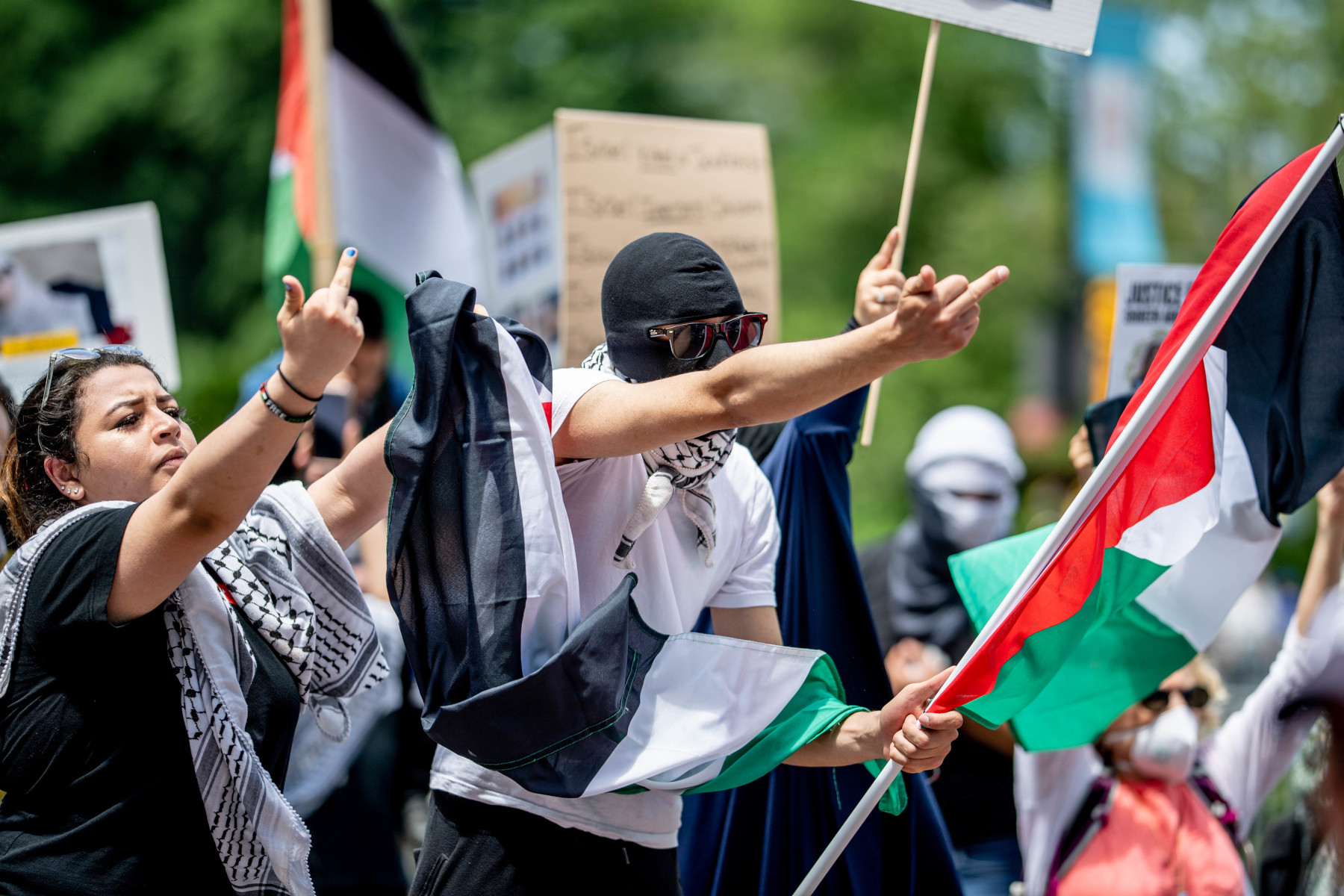Our Week in Review, a newsletter emailed to subscribers every Friday. To subscribe, sign up here.
There is a three-letter, profane Egyptian word that I have long found fascinating. When it is written out in a message or on social media in transliterated English, it is spelled “a7a,” with the 7 denoting a guttural h sound. This simple word is roughly equivalent in terms of usage to the F word in English, being used to denote frustration, surprise, delight and anger. It is also accompanied by theatrics when used to demonstrate extremes of frustration and rage. You can precede the actual word with a “shakhra,” a guttural snort, and extend the vowel at the end so it becomes “a7aaaaaa.” The release and venting of frustration in that form brings immeasurable relief.
The word, however, is considered “bee’a,” which means environment or locale but, in this case, indicates that it is not to be said in polite company.
Profanity in public discourse has always delighted me since at a young age I came across George Carlin’s famous “Seven Words You Can Never Say on Television” routine, which expounded on the power we give words, and when I started listening to rap.
But what fascinated me about profanity was not the rebellious aspect of using words that were deemed inappropriate in polite society. It’s that, outside of people’s homes, polite society didn’t seem to exist.
I am from Egypt, and we visited every summer growing up. When we returned to Dubai, where we went to school, my mother spent the first few weeks back from holiday trying to make us unlearn the slew of profanities we had picked up during our visit. (One time she hid all the videotapes of Adel Imam comedy plays because she overheard me use a mild insult from one of them on my brother.) Merely crossing the street in Cairo or our hometown increased the likelihood of becoming the collateral recipient of insults to the honor of one’s mother, and these profanities were also used as terms of endearment between friends.
This was not unique to Egypt either. I have met few people as creative in crafting insults and weaving complex wordplay that references genitalia as the elderly Lebanese gentlemen I interviewed in the course of being stationed in Beirut or the Syrians I befriended while covering their country.
But being from Egypt, I was fascinated by the disparity between how we talked about ourselves — all the TV shows and public figures discussing “Egyptian family values” and “public decency” and how stars and celebrities need to live up to those values — and how there was nothing decent about our street talk or the overt and subtle misogyny of it. Even the words they used to describe the assault on public decency, “khadsh al haya’ al ‘am,” literally “scratching public decency,” emphasized the delicate nature of this public morality, as though it needed to be protected from every minor affront.
I thought of these contradictions when I read an essay we published this week in New Lines by Youssef Rakha, an Egyptian novelist, poet and essayist. In the essay, Rakha profiles the Egyptian poet Naguib Surour, who penned a 6,000-word epic dubbed the “Kuss Ummiyat” that flaunted Egyptian swear words and profanities. Rakha uses Surour’s example as an entryway to discussing the place for profanity and street vernacular in art as well as its capacity to portray emotions and realities that are difficult to articulate otherwise.
Rakha writes: “The ‘Ummiyyat’ is not just dirty verse. It gets at the inhumanity of life in a police state: torture, mass surveillance, disinformation. Surour had been spied on by Egyptian colleagues who pretended to be his friends in Moscow. When he accused his second wife of infidelity, he was convinced that she, too, was reporting on him to the mukhabarat [the secret police]. A dual paranoia runs through the raw rage at the heart of the poem. Surour feels emasculated as well as watched. Though at times the work is over the top, the tragic-hero image he presents of himself is poignant. It is the voice of someone who truly has nothing left to lose.”
He adds: “Despite that, it’s hard to walk anywhere in Cairo today without hearing someone swearing. But the hypocrisy is such that in the public sphere people still like to pretend that swearing is taboo. They take issue with it in the arts especially, the assumption being that the artist’s job is moral instruction.”
This hypocrisy belies, to my mind, the power of profanity. When words are so powerful, they alone can tell a story of abject loss and desperation. When words are so powerful, they expose the lies we tell ourselves about ourselves.
From this week (May 23 – May 27, 2022)
When the Establishment No Longer Calls the Shots in Writing History | Read More
As Jews, We Must Demand Justice for Shireen Abu Akleh | Read More
Podcast: Catfishing a Killer | Read More
We Need to Talk About How We Cover Terrorism | Read More
South Africa’s New Xenophobia | Read More
The Sheriff of Kherson | Read More
Russia Backers Link Buffalo to Ukraine | Read More
When Bad Language Makes Good Literature | Read More
Amid Grief for Shireen Abu Akleh, a Reckless Religious Argument Surfaces | Read More



